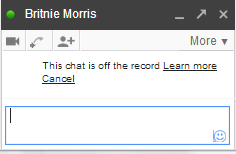I highly recommend that you consider leaving your smartphone at home while traveling abroad. My colleague Andy Mirsky asked me to write this post while I spoke with him from Spain. He called my 202 number, and we chatted for about 15 minutes and planned to speak again next week. What’s the significance of this, you ask? Well, I’m in Europe. Until I was pickpocketed in Puerta Del Sol, Madrid, last week, I was able to text and phone home as much as my poor, little homesick heart desired without being charged a dime. So pack your smartphone, enable Airplane mode, and forget about roaming fees.
Talkatone is a free app officially available for iPhone, iPod, iPad (iOS 4.0 and later). You can also download Talkatone on some Android devices although it’s not officially supported by the app. Talkatone uses Voice Over IP (VOIP) technology to connect users to any US or Canadian number via a Google Voice account. Talkatone is also an alternative to stay connected via your mobile device when you’ve got weak cell tower reception but can access WIFI.
Here are the steps:
- Get a free Gmail account if you don’t already have one.
- Sign up for a free Google Voice account here.
- Download both the Google Voice app (I prefer Google Voice for texting) and Talkatone on your mobile device.
- Sync your Google voice account with your Talkatone app.
- Call and text home for free from anywhere, although you’ll have to be able to access the internet – awesome, right?
Although services like Skype are great for chatting with friends and colleagues during your travels, you cannot use these applications to contact individuals at institutions such as banks and medical offices who do not subscribe to these services. Since I’m without iPhone, I have spent the past week trying to figure this out: If for some reason you’re ever abroad and all you’ve got is a computer and WIFI, how do you phone people at home… for free? Google Voice has an awesome extension for Chrome users that, just like Talkatone, allows you to send unlimited, free SMS text messages and also make and receive calls all via your desktop.
Quick tips:
- I prefer the texting interface on the Google Voice App over Talkatone’s so I would recommend downloading this app as well.
- Call quality will depend on strength of your data signal. And, if both parties use Talkatone, expect a clearer conversation.
- If you’re in my position and feel totally disconnected from the world, there are plenty of other options to keep in touch with loved ones and work. However the more well-known apps for making calls (Skype and Google Voice, most obviously) charge fees. Their rates are competitive and modest, but of course I like free.
Enjoy your time abroad, watch out for pickpockets, and please share this information with friends and family with whom you want to stay connected!
Read More



